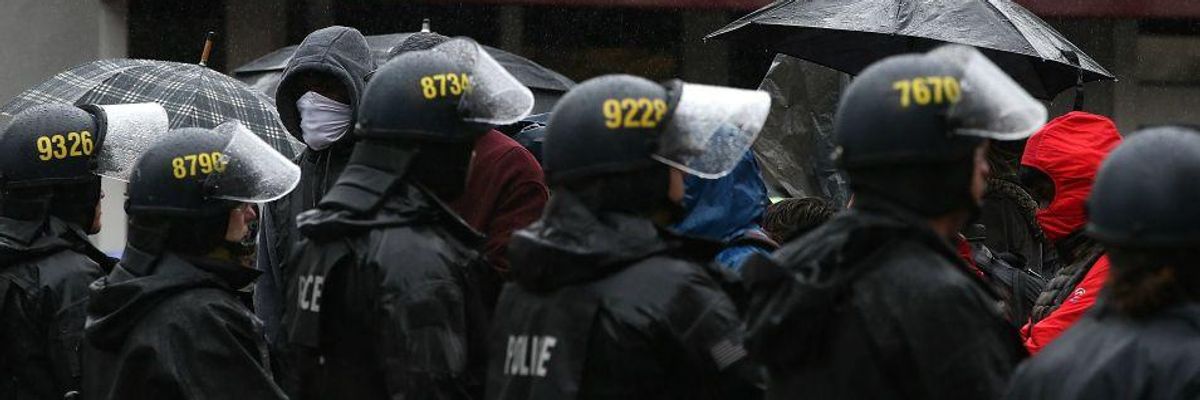The ACLU on Tuesday filed a lawsuit against the city of Hayward, California and its police force after the department charged the National Lawyers Guild (NLG) nearly $3,000 to view body camera footage from a recent Black Lives Matter demonstration against police brutality.
Several protesters were injured during a December rally in Berkeley against recent grand jury decisions not to indict officers involved in the high-profile deaths of two black men, Michael Brown and Eric Garner.
According to the lawsuit (pdf), the Hayward Police Department charged the NLG, a public interest law group, $2,938 to access one round of footage from the protests--a move which the ACLU said undermines government transparency and accountability and threatens efforts to mend public trust in police officers.
The civil liberties group had requested the footage under California's Public Records Act (PRA), which guarantees that "access to information concerning the conduct of the people's business is a fundamental and necessary right of every person in this state."
"The Public Records Act and police body cameras have one thing in common: both are intended to promote government transparency and accountability," said Alan Schlosser, senior counsel with ACLU-Northern California. "This common purpose will be thwarted if Hayward is allowed to impose exorbitant costs for the public disclosure of police body camera footage."
"Such a hefty price tag will put these public records beyond the reach of most Californians, including journalists investigating possible instances of excessive force by police," Schlosser said.
The NLG was told that the charge included $1 for a DVD of the footage and the rest for "staff time necessary to accommodate the PRA request."
Use of body cameras by law enforcement officers has been suggested as a measure to address police violence. But, as Common Dreams has previously reported, there are numerous risks involved with relying on body cameras as principal safeguards against brutality--including giving officers power over when and how to release footage.
Rachel Lederman, NLG chapter president, said on Tuesday that the "positive impact of body cameras on public trust and truth finding is directly undermined when the public cannot get access to the videos, whether because the police unlawfully refuse to release them entirely, or only release the footage they want the public to see, or try to charge excessive costs for footage as Hayward is doing."
Frank Holland, a Hayward spokesperson, told the Contra Costa Times that the city was "committed to full compliance with the Public Records Act."

